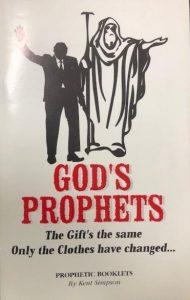Prophetic Praise on Passover
Christ and His Disciples celebrated the Passover Feast the night before His Crucifixion, where Jesus used the prophetic imagery of the bread as His Body and the wine as His Blood to explain the sacrifice He was about to make. The closing of the Passover meal included another tremendously significant prophetic signal that enlightened the expectant Hebrews of Christ’s coming and was something Jesus and His Disciples also participated in during the Last Supper: the singing of Psalms.
The Book of Psalms was a collection of songs of praise, similar to the hymnal books found in many churches today. These songs were sung during weekly worship and God’s Festivals. Just as we have seasonal songs, some of these psalms were designated for specific holy days. Psalms 113-118, which were sung during Passover, were collectively referred to as the “Hallel“ (translated: “Praise“), the root of “Hallelujah“, which means “Praise the Lord“. These Songs of Praise were written during David’s kingship, but were later adopted in the Haggadah, which established a systematic way to observe the Passover feast in what we know today as a Seder.
The priests who served in the Temple, during the Passover, would have been singing these Psalms as they handed the blood filled silver basins to each other in a chain, with the last man tossing the sacrificial lamb’s blood onto the Mercy Seat. The sounds of their unified chanting would have filled Jerusalem during the Passover festivities creating a harmonic atmosphere for the Jewish men who had come from all over the known world to offer their ransom.
The Hallel song lyrics clearly showed that the Passover Feast was not restricted to Jewish participants, but that God’s Love was extended to all who feared God. In Psalm 116:9-11, all people, starting with “All you Israelites”, followed by “House of Aaron”, and closing with “You who Fear Him” are encouraged to “trust in the Lord-He is their Help and Shield“.
All you Israelites, trust in the Lord-
He is their Help and Shield.
House of Aaron, trust in the Lord-
He is their Help and Shield.
You who fear Him, trust in the Lord-
He is their Help and Shield.
This encompassing of all mankind is not accidental, and is repeated in Psalm 118:2-4, when the Psalmist wrote “Let Israel Say”, trailed by “Let the House of Aaron say”, finishing with “Let those who fear the Lord say”: “His Love endures forever”.
Let Israel say:
“His love endures forever.”
Let the House of Aaron say:
“His love endures forever.”
Let those who fear the Lord say:
“His love endures forever.”
After the Passover meal, Christ and His Disciples would have sung the closing half of the Hallel, Psalms 116-118.
Psalm 116 especially has direct references to Christ’s last few hours before His Crucifixion. The stanza “Everyone is a liar” (v. 11) alluded to not only Judas who betrayed Him, but also Peter who denied Him. “I will lift up the cup of salvation and call on the name of the Lord” (v. 13) must have chimed through Jesus’ thoughts as He prayed “let this cup pass from Me“, but He satisfied the following line that “I will fulfill my vows to the Lord in the presence of all his people,” (v.14) when He faced Crucifixion, recognizing that “Precious in the sight of the Lord, is the death of his faithful servants” (v.15).
Psalm 117 is the shortest psalm and the shortest chapter in the Bible, exclaiming
“Praise the Lord, all you nations,
extol Him, all you Peoples”,
“For great is His Love toward us,
and the Faithfulness of the Lord Endures forever”.
It concludes with “Praise the Lord”, reminding us that His immeasurable Love and Faithfulness should be recognized and celebrated by Everyone.
Psalm 118, the closing psalm, had been alluded to throughout Christ’s ministry. Jesus explained that He was “the Lord’s right hand, [which] has done mighty things!” (v. 15), “the gate of the Lord, through which the righteous may enter” (v. 20), and “the stone the builders rejected, [which had] become the cornerstone” (v. 22).
As Jesus entered Jerusalem riding on the back of a donkey, the crowds chanted “Hosanna! Blessed is the One coming in the name of the Lord. Blessed is the coming kingdom of our father David. Hosanna in the highest [heavens]!” (ref. Matthew 21:9; Mark 11:9-10; Luke 19:38; John 12:13). This direct reference to Psalm 118:25-26 meant that the adoring crowds understood that this Psalm was alluding to Christ as they chanted while He entered the city.
While the Passover Feast had transformed since the night of the 10th Plague, when the First Born was slaughtered, Jesus was able to take the new symbols, such as the wine drunk, to allude to His Blood, and the Psalms sung, to demonstrate the sacrifice He was about to give. In whatever capacity you celebrate and remember Our Savior’s Sacrifice this week, we pray that you give thanks unto the LORD; for He is good: for His Mercy endureth for ever.
Prepared by, Kent Simpson, Apostolic Prophet & Eric Sepulveda, PMT Administrator
For more prophetic media groups click here



